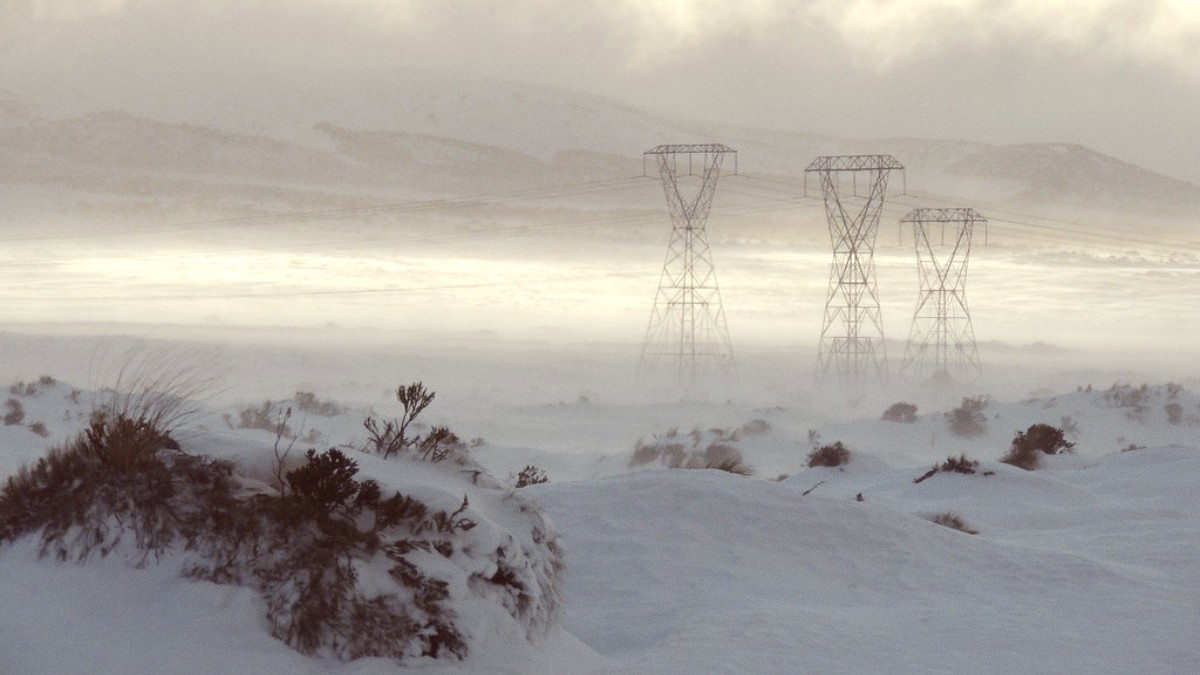
Taupo And The Central Plateau, New Zealand
Summer (December-February): These months bring the warmest weather, with average daytime temperatures ranging from 20-25°C (68-77°F). Rainfall remains moderate, and humidity levels are generally comfortable. This period includes long daylight hours, great for outdoor activities.
Autumn (March-May): Temperatures become milder, typically between 15-20°C (59-68°F). Autumn often features settled weather, with clear, crisp days. Rainfall continues at moderate levels. This season brings beautiful autumn foliage, notably in areas with deciduous trees.
Winter (June-August): Winter brings the coolest months to Taupo. Daytime temperatures average 8-12°C (46-54°F). Nights can drop to 0-4°C (32-39°F), and frost is common. While higher rainfall occurs, snow rarely falls in the town itself, appearing more frequently in the surrounding mountains, especially in Tongariro National Park.
Spring (September-November): Weather during spring remains variable. Temperatures range from 12-18°C (54-64°F). Windy conditions occur sometimes, with periods of rain, but the season also has many sunny days as nature awakens.
Water Sports (kayaking, paddleboarding, swimming, jet boating): December to March offers the warmest lake temperatures.
Hiking (Tongariro Alpine Crossing): November to April brings the best conditions for this challenging hike. Guided tours remain highly recommended in shoulder seasons due to variable weather.
Mountain Biking (Great Lake Taupo Cycle Trail): October to April is a good period for cycling.
Fishing (Trout): Fishing is available year-round. Peak fishing times vary by species and specific locations within the lake and rivers.
Skiing/Snowboarding: June to October brings prime conditions at the ski fields in Tongariro National Park.
Thermal Hot Pools: Enjoy these year-round, finding them especially appealing in cooler months for warmth and relaxation.
December-February (Summer)
Warmest weather, ideal for water activities and summer hiking.
Higher prices for accommodation/activities, more crowds, book in advance.
March-May (Autumn) & September-November (Spring)
Milder temperatures for outdoor activities, fewer crowds, lower prices, beautiful foliage/blossoms.
Weather can be more variable, spring sometimes bringing windy conditions, some tours on reduced schedules.
June-August (Winter)
Lowest prices for accommodation, very few crowds, ideal for winter sports and hot pools.
Coldest weather, shorter daylight hours, limited outdoor activities, restricted lake activities.
Consider checking local event calendars for Taupo before your trip.
Major events, like fishing competitions or cycling races, can impact accommodation availability and prices, regardless of the season.
Warmest lake temps for water sports.
Best for Tongariro Alpine Crossing (hiking).
Good for Great Lake Taupo Cycle Trail.
Trout fishing is available.
Prime ski/snowboard conditions at Tongariro NP.
Most visitors need either an Electronic Travel Authority (NZeTA) or a specific visa.
Passport holders from visa-waiver countries (including the United States, United Kingdom, EU countries, and Australia) must obtain a NZeTA.
Visitors not from visa-waiver countries must apply for a Visitor Visa.
Always check the official Immigration New Zealand website before your trip. Requirements can change, and the official site gives the most current and accurate information.
New Zealand can be an expensive destination, but strategies exist to manage your budget across various travel styles.
The official currency is the New Zealand Dollar (NZD, or NZ$). As of early 2024, approximately 1 USD equates to 1.60 NZD. Check current rates before your trip.
ATMs are widely available. Major credit cards (Visa, Mastercard, American Express) are accepted almost everywhere. Currency exchange services are available at international airports and in larger towns, but rates may be less favorable.
Daily Average: NZD $80 - $150. This budget suits backpackers, solo travelers, and those who prioritize experiences over luxury.
Hostel dorms ($35-60), self-catering ($20-30/day), free activities.
More crowds during high season, limiting spontaneity.
Daily Average: NZD $150 - $300. This budget allows for more comfort and a wider range of activities.
Motels/hotels ($120-200), casual dining ($25-45/meal), some guided tours.
Weather can be variable in shoulder seasons, impacting outdoor plans.
Daily Average: NZD $300+. This budget supports premium experiences, fine dining, and top-tier accommodation.
Boutique hotels ($300-800+), fine dining ($60-150+), exclusive tours.
Peak season bookings fill quickly, requiring early planning.
| Category | Item | Price Range (NZD) |
|---|---|---|
| Accommodation | Hostel dorm / Budget motel / Mid-range hotel / Luxury lodge | $35-60 / $100-180 / $150-250 / $300-800+ |
| Meals | Breakfast (cafe) / Lunch (cafe) / Dinner (casual/fine dining) | $8-30 / $15-25 / $30-100+ |
| Transportation | Local bus ride / Taxi (short) / Daily car rental (economy) | $2-5 / $10-25 / $50-100 (excl. Fuel/ins.) |
New Zealand has high standards for health and safety, but awareness of local conditions helps prepare you.
No mandatory vaccinations, but routine ones recommended. Consult your doctor.
High standard medical care. Taupo Hospital for general services, larger hospitals for specialists.
Non-residents typically pay for services, which can be expensive.
Always use sun protection due to high UV levels.
Sunburn: Wear High SPF sunscreen (30+/50+), hats, and Sunglasses. Seek shade between 10 am and 4 pm.
Sandflies: Prevalent in damp, bush-heavy areas. Use Insect repellent (DEET or picaridin). A Travel-size insect repellent is useful. Wear long sleeves/pants around dawn/dusk.
Tick Bites: Less common but can appear in bushy areas; check after walks. Water/Food Quality: Tap water is safe. Food hygiene standards are high.
New Zealand has a low crime rate; Taupo is safe. Practice standard precautions for valuables and walking at night.
Earthquakes are frequent (mostly minor); familiarize with "Drop, Cover, Hold." Volcanic activity poses risks in volcanic zones; follow GeoNet warnings.
Highly recommended. Covers medical emergencies, trip cancellation, lost luggage. Check World Nomads, SafetyWing, or Insubuy.
Keep these numbers handy for any emergencies or non-urgent needs.
High UV index means sunscreen, hats, and sunglasses. Sandflies means insect repellent.
Tap water is safe to drink. Food hygiene in establishments is very high.
Be aware of earthquake and volcanic risks; follow official advice.